Nutrition
If you find a broken link in this list, please report it to the webmaster.
Fibre is an important part of a healthy balanced diet. It can help prevent heart disease,diabetes, weight gain and some cancers, and can also improve digestive health.
However, many people don't get enough fibre. On average, most people in the UK get about 18g of fibre a day. You should aim for at least 30g a day.
For children it is recommended the average amount of dietary fibre per day should be:
- 2-5-year-olds: about 15g
- 5-11-year-olds: about 20g
- 11-16-year-olds: about 25g
- 16-18-year-olds: about 30g
Fibre is only found in foods that come from plants. Foods such as meat, fish and dairy products don't contain any fibre.
There are two different types of fibre – soluble and insoluble. Each type of fibre helps your body in different ways, so a normal healthy diet should include both types. Eating wholegrain cereals and plenty of fruit and vegetables helps to ensure both adults and children are eating enough fibre.
However, if you have a digestive disorder such as irritable bowel syndrome (IBS), you may need to modify the type and amount of fibre in your diet in accordance with your symptoms. Your GP or a dietitian can advise you further about this.
Soluble fibre
Soluble fibre dissolves in the water in your digestive system. It may help to reduce the amount of cholesterol in your blood. If you have constipation, gradually increasing sources of soluble fibre – such as fruit and vegetables, oats and golden linseeds – can help soften your stools and make them easier to pass.
Foods that contain soluble fibre include:
- oats, barley and rye
- fruit, such as bananas and apples
- root vegetables, such as carrots and potatoes
- golden linseeds
Insoluble fibre
Insoluble fibre doesn't dissolve in water. It passes through your gut without being broken down and helps other foods move through your digestive system more easily. Insoluble fibre keeps your bowels healthy and helps prevent digestive problems. If you have diarrhoea, you should limit the amount of insoluble fibre in your diet.
Good sources of insoluble fibre include:
- wholemeal bread
- bran
- cereals
- nuts and seeds (except golden linseeds)
Eating foods high in fibre will help you feel fuller for longer. This may help if you are trying to lose weight. See the weight loss guide for more.
If you need to increase your fibre intake, it's important that you do so gradually. A sudden increase may make you produce more wind (flatulence), leave you feeling bloated, and cause stomach cramps.
It's also important to make sure you drink plenty of fluid. You should drink approximately 1.2 litres (six to eight glasses) of fluid a day, or more while exercising or when it's hot.
Further information:
*** CLICK AT ANY PICTURE below TO ENLARGE IT and see a SLIDE SHOW***
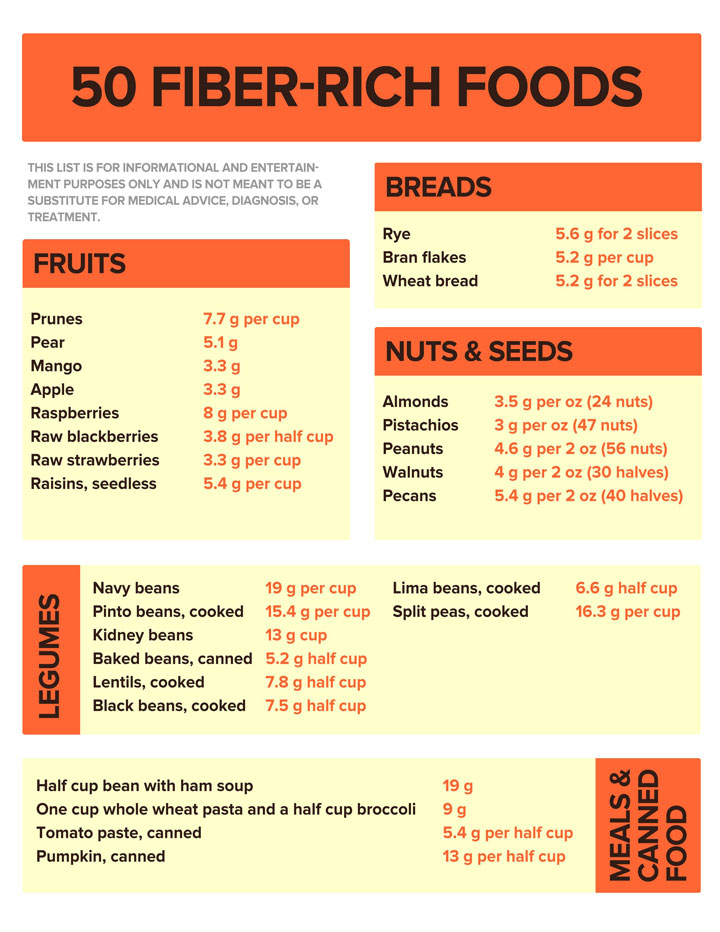 |
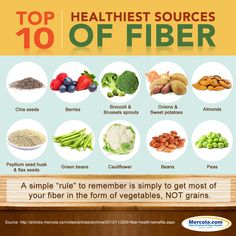 |
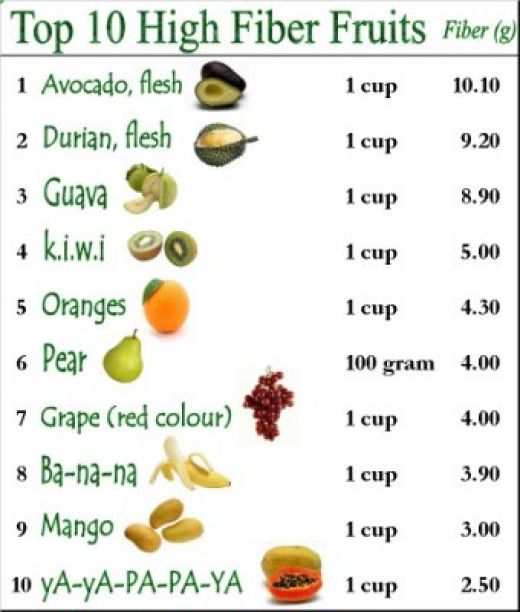 |
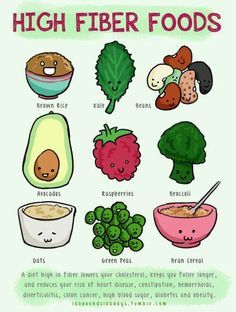 |
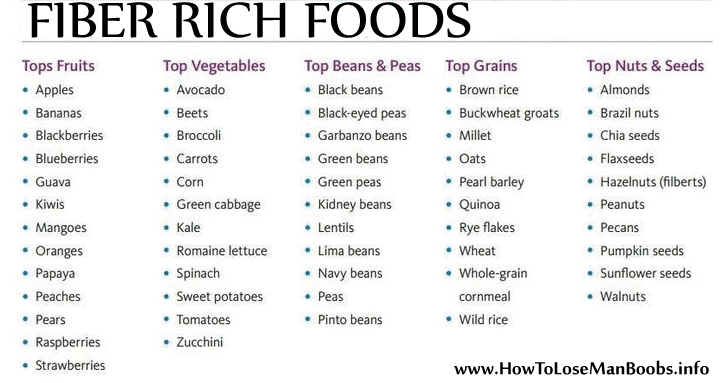 |
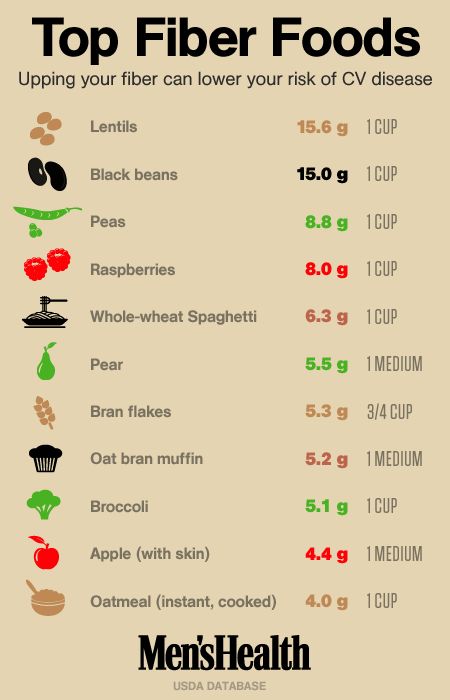 |
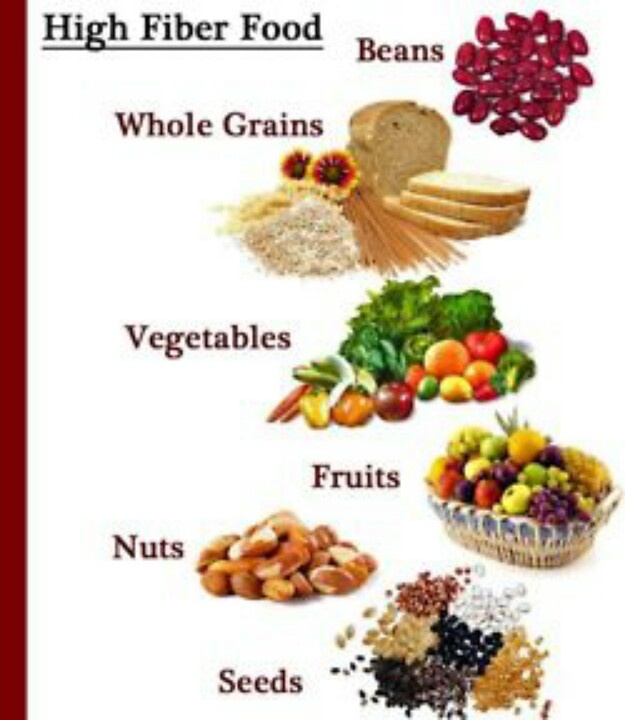 |
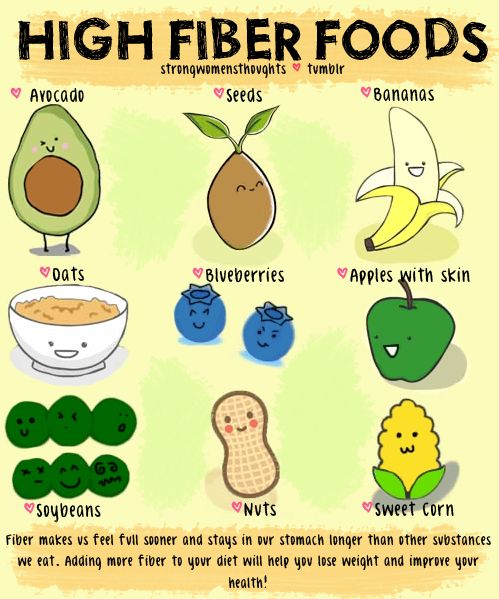 |
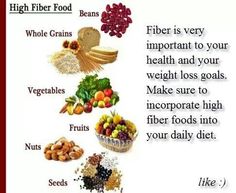 |
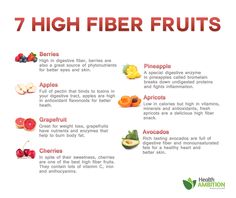 |
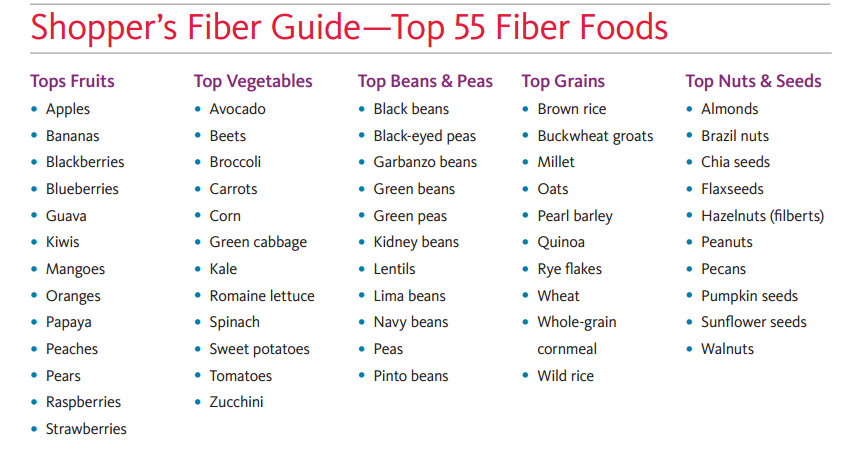 |
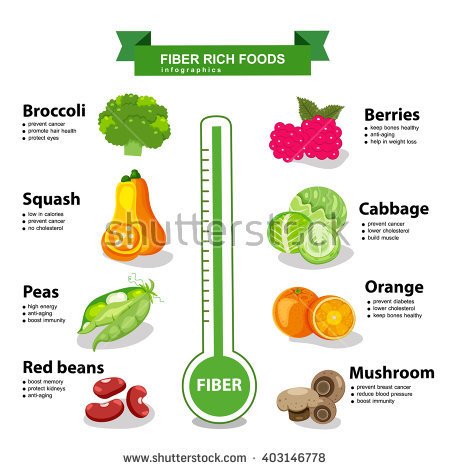 |
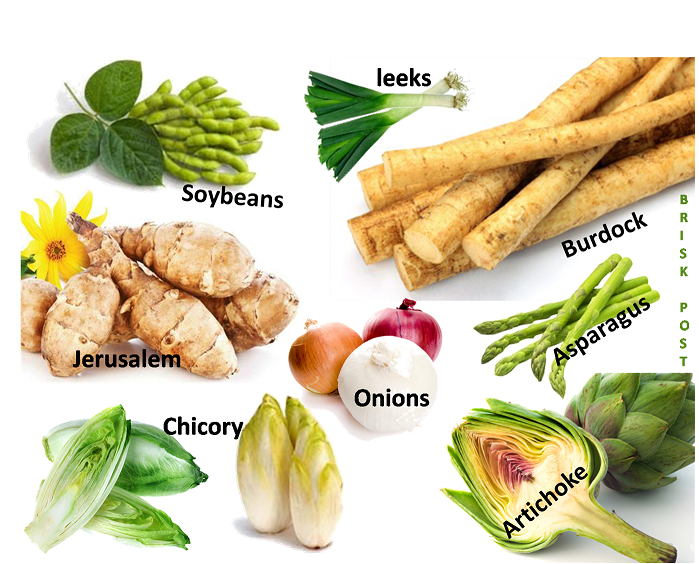 |
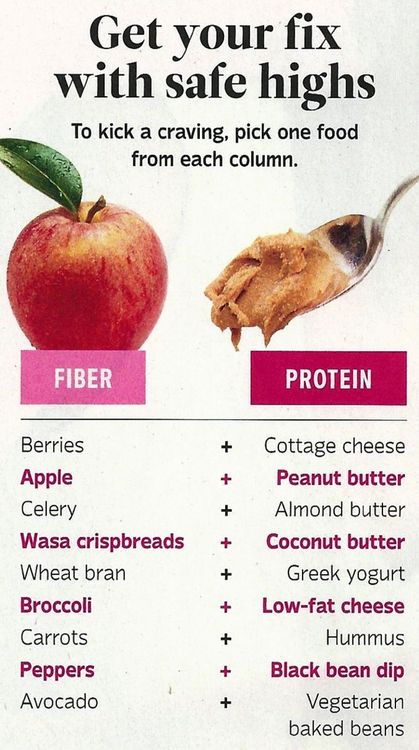 |
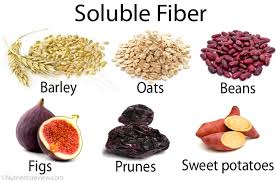 |
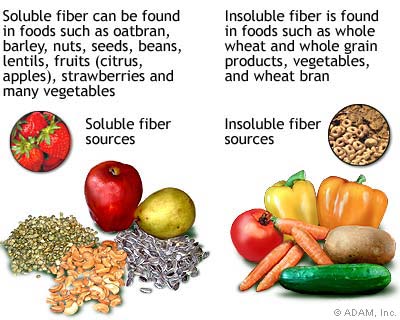 |
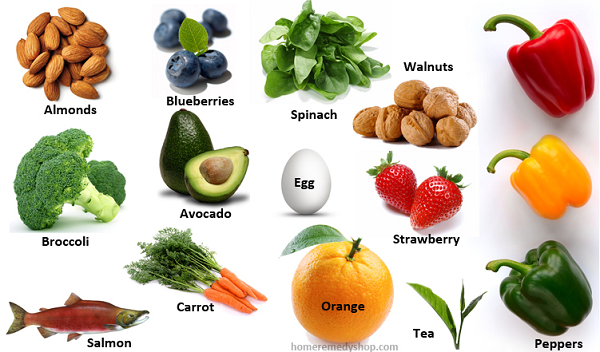 |
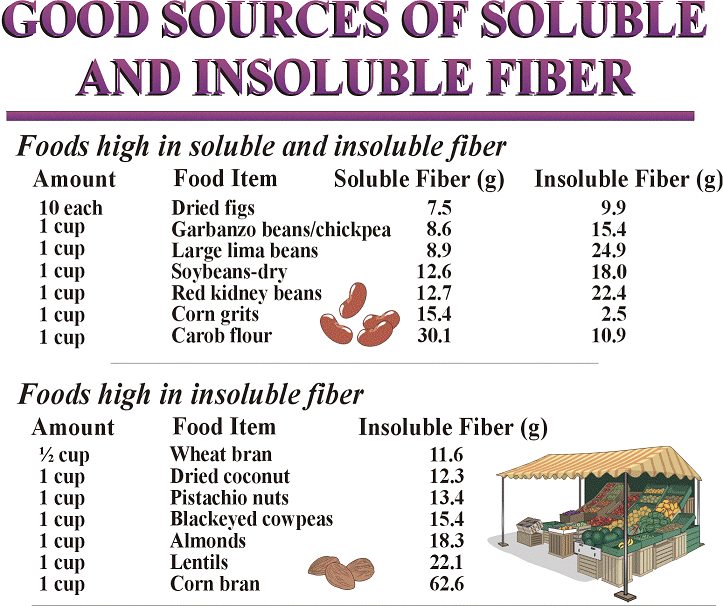 |
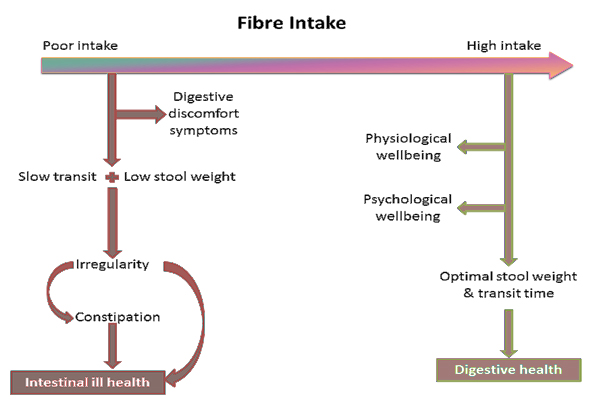 |
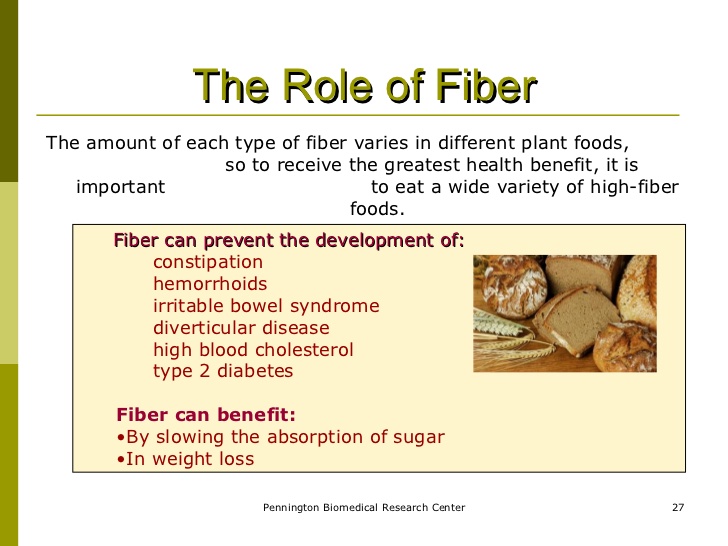 |